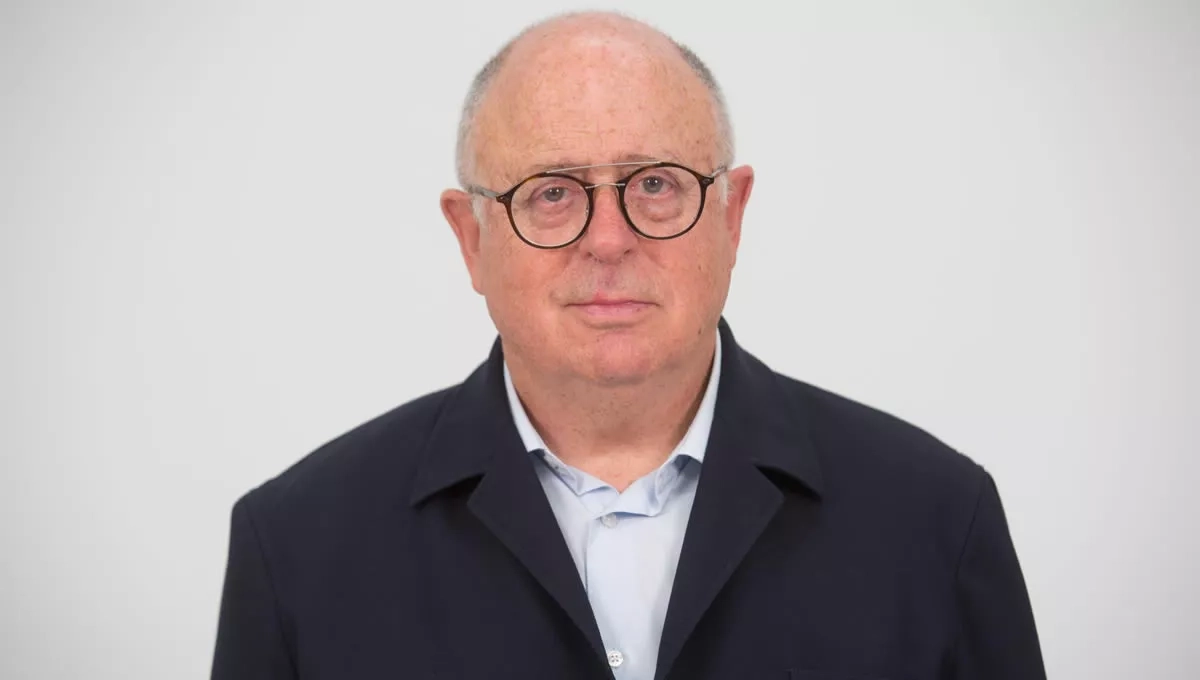Thousands of health professionals from all over the world celebrated last Saturday, October 14 World Palliative Care Day. However, there is a group of people who consider this date more special if possible, because they are the ones first to install a multidisciplinary unit for this one type of care In Spain.
This is about Santa Creu de Vic Hospital Palliative Care Unit, in the province of Barcelona. This Catalan health group following a trail started five years earlier at Santander by the doctor Jaime Sanz Ortiz, is considered a pioneer of palliative care in Spain – he traveled, with other colleagues, to hospitals in England to study how they work in this field – and has been director of the Palliative Care Unit in Spain since 1982. Marqués de Valdecilla Hospital.
This central Cantabrian unit gained its official recognition in 1987the same year the birth of the Santa Creu de Vic Hospital under the direction Xavier Gomez Batiste, who at that time served as head of Oncology at the center. Patients, when seriously ill and unable to attend a consultation, request home care on his ministry, which ultimately led to First PADES (Home Care and Supportive Equipment Programme) with a long tradition in public health in Catalonia.
“Previous experience consisted of 46 patients and their families”
“The previous experience consisted of 46 patients and their families,” Gómez Batiste told ConSalud.es. To prepare himself, and like his colleague at Santander, the doctor – who would later become the second palliative care unit manager in Spanish history – stayed for six months at St. Christopher in London. When he returned, he discovered that the Santa Creu de Vic Hospital had a new building, leaving the old building – “what was an acute hospital” and where the Palliative Care Unit is currently – practically abandoned.
“There were no stretchers, cables or telephones,” Gómez Batiste recalled. So on December 7, 1987, the first social health center in Catalonia. Then it is a nursing home which he coordinated with the help of several nuns, and little by little terminal cancer patients previously treated by doctors began to arrive.
“The first hospital had no beds, and the cheapest beds available were the ones we had at home”
“The empty hospital has no beds, and… The cheapest bed available is the one we have at home. “So palliative treatment starts at home,” he explained. Thanks to his initiative, in the following years “the concept of palliative care that we use today, with the theme of not giving years to life, but living in years”, and the social and health centers mentioned above were renamed intermediate care centers.
In addition to his work as director – together with Jordi Roca – of the Palliative Care Unit of the Santa Creu Hospital in Vic, Gómez Batiste also coordinates another pioneering project in Spain: The Palliative Care Plan in Catalonia for the period 1990-1995promoted by the Ministry of Health of Catalonia and the World Health Organization (WHO).
“In the following years, the concept of palliative care that we use today began to be defined and established”
That’s about a pilot programs at national and European level which shows the importance of integrating palliative care into the health system and was key to achieving the current situation. Palliative care units in hospitals, such as Santa Creu de Vic, are multidisciplinary for years now, and rightly so consisting of doctors, nurses, psychologists and spiritual volunteers. Furthermore, as a result of this progressive standardization of equipment, in 1992 Spanish Palliative Care Society (SECPAL).
Since those early years, the expert – who once advised WHO – has traveled to more than 60 countries around the world to disseminate information about palliative care. Professor of Palliative Medicine by the UVic-UCC School of Medicine, was recently appointed as the international expert for the review Singapore National Palliative Care Programinvited by the Ministry of Health of the Asian country.
He was also appointed director of the Collaboration Center World Health Organization for the public palliative care program and program director at WHO Geneva, and until now very active on X (formerly Twitter), where he constantly shares information about palliative care.
ConSalud content is prepared by journalists specializing in the health sector and supported by a committee of top-level experts. However, we recommend that readers consult any health-related questions with a healthcare professional.

“Internet trailblazer. Troublemaker. Passionate alcohol lover. Beer advocate. Zombie ninja.”







